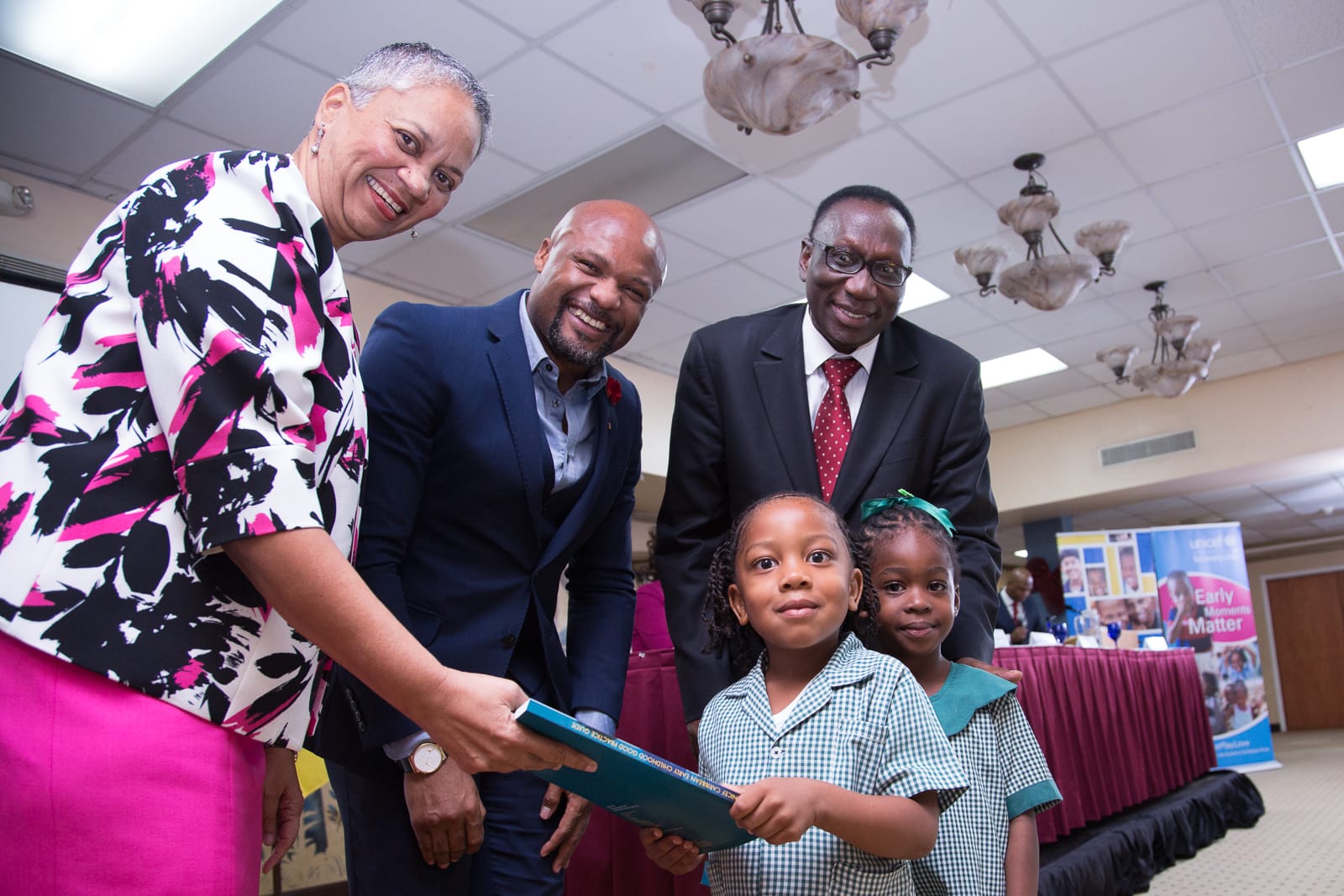
International and Regional academicians, researchers and practitioners have convened in Antigua and Barbuda to discuss opportunities and plans for improving the quality of and access to early childhood education for Caribbean children ages zero to five.
The three-day Early Childhood Development Regional Research Conference, themed “Early Moments Matter – Nurturing Care in the Early Years”, takes place February 13 to 15.
Despite a strong correlation between investment in early childhood development (ECD) and high levels of social and economic development, research suggests that the Caribbean still invests too little, or not at all, in early education.
According to data collected by the Caribbean Development Bank (CDB), 25 percent of the Region’s children, mainly those from poor and vulnerable families, do not have access during critical developmental years.
CDB and the United Nations Children’s Fund (UNICEF) have therefore partnered to produce the Caribbean Early Childhood Development Good Practice Guide, which launched officially on Tuesday during the opening ceremony of the Conference.
“CDB has taken a policy decision that early childhood education will be a priority for 21stcentury education. To this end, the Bank will deliberately work with our Borrowing Member Countries to reconfigure available capacity at the primary level to accommodate additional ECD places, establish standalone nursery schools and pilot model ECD centres to accommodate new classes in parallel with the training of early childhood teachers,”Monica La Bennett, Vice-President (Operations), CDB told attendees.
Research shows that every dollar spent on ECD results in a return of seven dollars, and highlights a strong correlation between countries that invest heavily during these early years, and those with high levels of economic and social development. Citing this data, La Bennett called for greater collaboration and cooperation among Regional stakeholders, including between donors and borrowers.
The cost of inaction, says Dr. Aloys Kumaraguye, UNICEF Representative for the Eastern Caribbean Area, is enormous, and has profound implications.
“The evidence compels action,” he said. “Inequity begins in the first days of life, and so must our efforts to close the gaps that prevent scores of children from realizing their right to develop fully and thrive.”
Supported by scientific evidence that nurturing care and protection in the earliest years can positively boost developmental outcomes, Dr. Kumaraguye noted that “Early Moments Matter” is more than a campaign.
“It is a rallying call to development partners, governments, the private sector and caregivers as a whole, to place our youngest citizens at the centre of development,” he added.
The Government of Antigua and Barbuda is prepared to answer that call said the Hon.Michael Browne, Minister of Education.
“We are in the process of building a modern early childhood institute, and it is not just teachers who are going to be trained,” he said. “We are opening up the opportunity so that scholarships can be given to the elderly and retired in our communities, who would otherwise be babysitting, to have an opportunity to train, then go back to their homes with the understanding that these are the values that you impart to youngsters.”
The programme promotes quality teaching, quality tools and a quality environment, three pillars upon which Antigua and Barbuda is building to facilitate improved ECD.
Across the Region, UNICEF’S capacity-building efforts in ECD include support for child-centered and developmentally appropriate environments for quality early experiences, establishing social protection systems to improve the lives of children in vulnerable situations, and engaging with parents and families to strengthen their capacity to provide nurturing and responsive care.
In addition to partnering with UNICEF to produce the Good Practice Guide, CDB’s Vice-President told Conference delegates that the Bank will, over the next five years, support ECD projects, including the construction of 22 pre-primary schools in Belize. CDB, she said, will also collaborate with some of its Borrowing Member Countries to support the customization and implementation of early stimulation and emergent learning programmes to benefit approximately 7,400 pre-schoolers.
CDB’s and UNICEF’s efforts align with the Region’s ongoing drive to meet Goal 4 under the 2030 Sustainable Development Agenda, which focuses on ensuring inclusive and equitable quality education and promoting lifelong learning opportunities for all.
Advertise with the mоѕt vіѕіtеd nеwѕ ѕіtе іn Antigua!
We offer fully customizable and flexible digital marketing packages.
Contact us at [email protected]














what a fish love pictures
If you are the minister of education and you are now DISCUSSING anything pertaining to education much less childhood development what the hell have you been doing for the past 3 years? This country is the worse if its not trial and error its government by talk radio. What are you getting paid for?
Comments are closed.